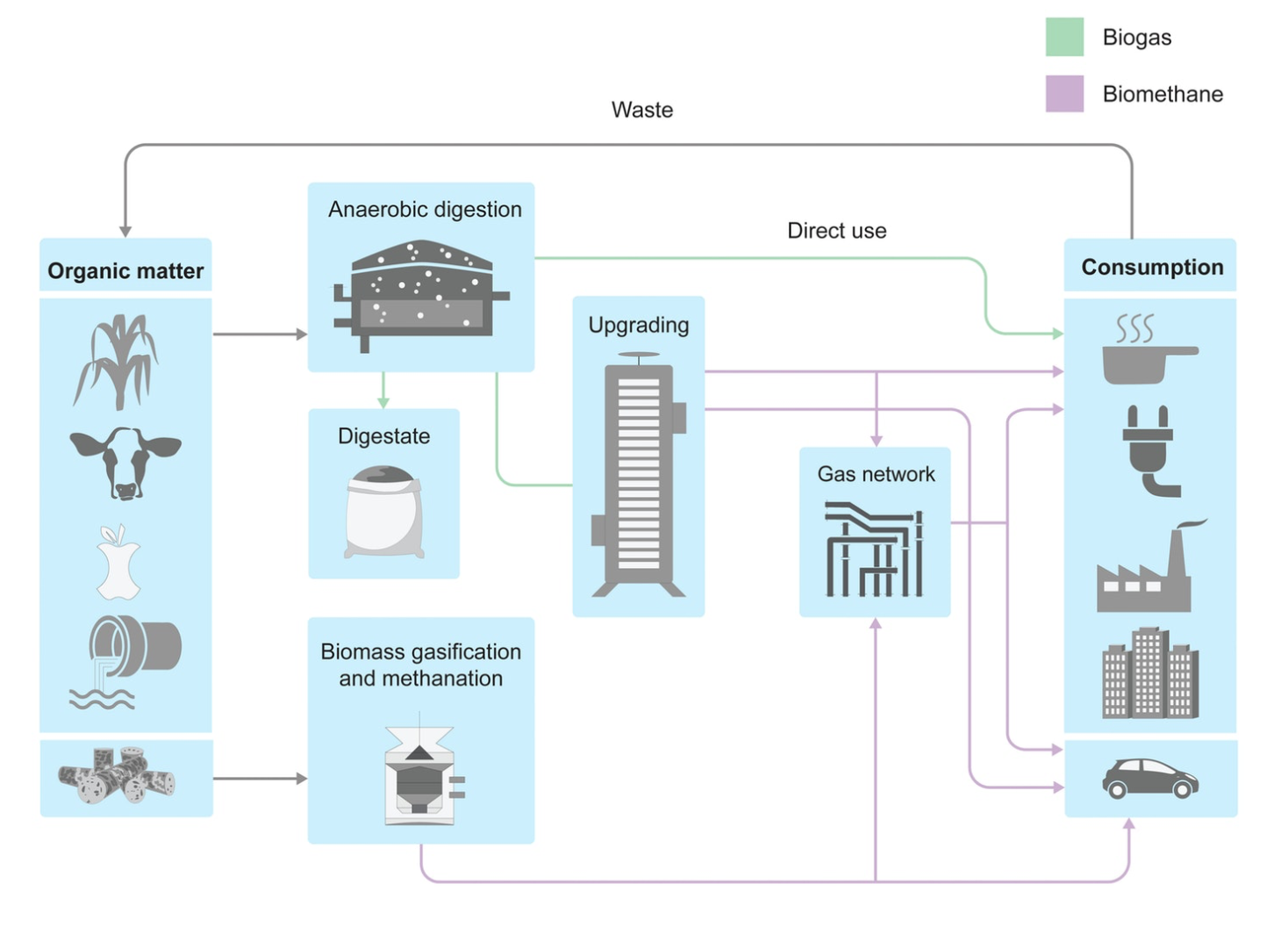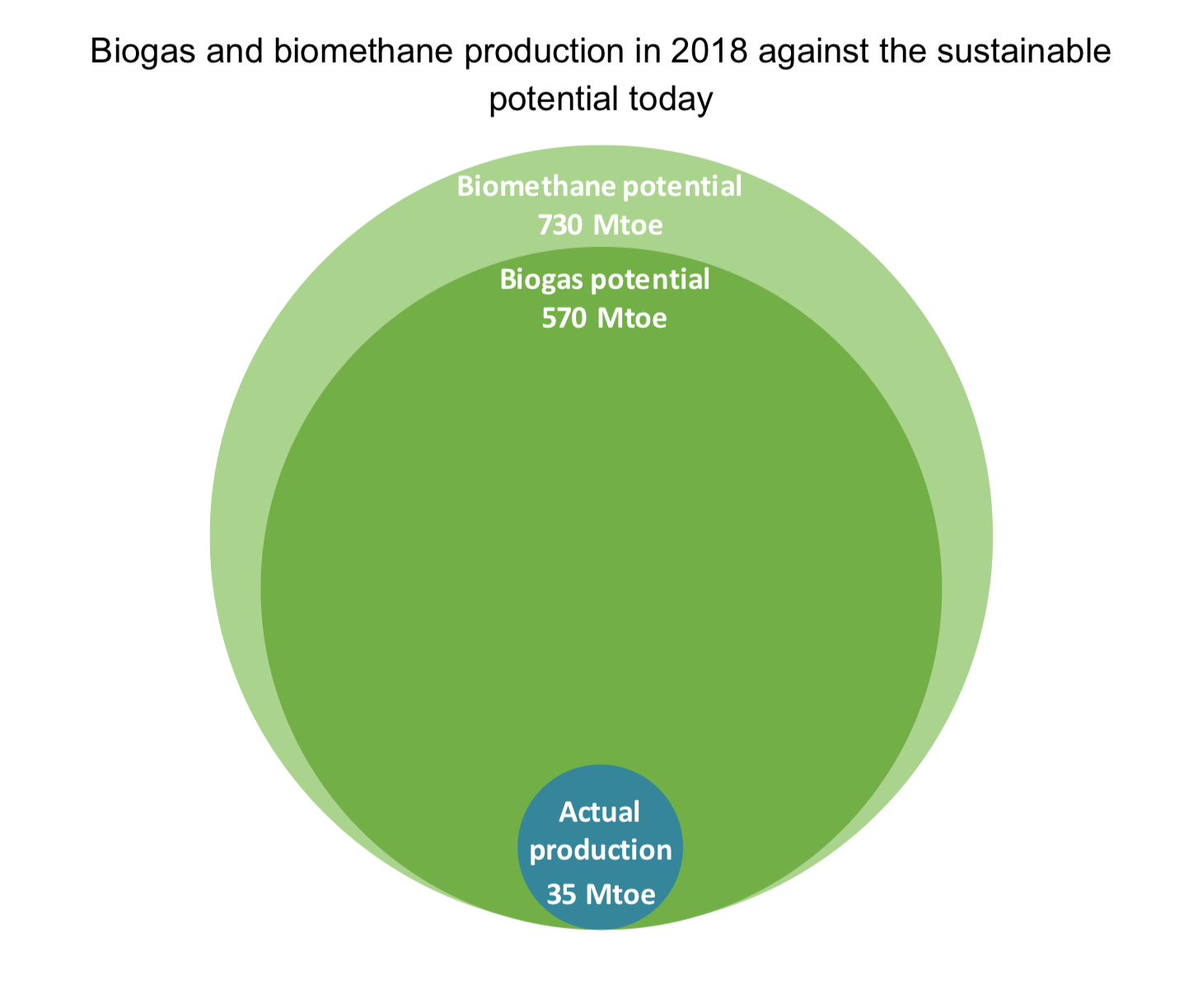Global outlook for biogas and biomethane by IEA 2020
The case for biogas and biomethane lies at the intersection of two critical challenges of modern life: dealing with the increasing amount of organic waste that is produced by modern societies and economies, and the imperative to reduce global greenhouse gas (GHG) emissions.
By turning organic waste into a renewable energy resource, the production of biogas or biomethane offers a window onto a world in which resources are continuously used and reused, and one in which rising demand for energy services can be met while also delivering wider environmental benefits.

Biogas can be a valuable local source of power and heat, as well as a clean cooking fuel to displace reliance on the traditional use of solid biomass in many developing countries. There are also potential co-benefits in terms of agricultural productivity (as a result of using the residual “digestate” from biodigesters as a fertiliser) and reducing deforestation.
Biomethane is indistinguishable from natural gas and so can be transported and used in the same way.
UABIO
When upgraded, biomethane (also known as renewable natural gas) is indistinguishable from natural gas and so can be transported and used in the same way. Biomethane can deliver the energy system benefits of natural gas while being carbon-neutral.
Modern societies and economies produce increasing amounts of organic waste that can be used to produce clean sources of energy, with multiple potential benefits for sustainable development.
UABIO
The feedstocks available for sustainable production of biogas and biomethane are huge, but only a fraction of this potential is used today

The Bioenergy Association of Ukraine since 2019 is a partner of the platform of sustainable agribusiness SAF Ukraine.


